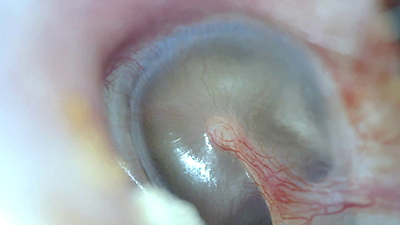Glue Ear

Understanding Glue Ear:
Glue ear, medically known as otitis media with effusion (OME), is a condition that occurs when fluid builds up in the middle ear, behind the eardrum. This fluid, which is often sticky and thick, gives the condition its colloquial name, "glue ear". Glue ear is commonly seen in children, particularly those between the ages of 2 and 5, but it can affect individuals of any age.
Symptoms and Impact:
Glue ear can cause a range of symptoms that may vary from mild to severe. Common signs to watch for include:
1. Hearing Loss: The presence of fluid in the middle ear interferes with sound transmission, leading to varying degrees of hearing loss. This can affect a child's ability to understand speech, follow instructions, and perform well in school.
2. Speech and Language Delay: Persistent glue ear can hinder normal language and speech development in young children. The inability to hear clearly during critical developmental stages can lead to delays in speech production and vocabulary acquisition.
3. Balance Issues: In some cases, glue ear can cause problems with balance and coordination. Children may experience dizziness, frequent falls, or appear clumsier than their peers.
Treatment Options:
Dr. Seejo George offers comprehensive treatment options for glue ear, tailored to each patient's unique needs. Treatment options may include:
1. Watchful Waiting: In some cases, mild glue ear can resolve on its own without intervention. Dr. George may recommend regular check-ups to monitor the condition's progression and provide appropriate treatment if needed.
2. Antibiotics: If the glue ear is associated with an infection, antibiotics may be prescribed to clear the infection and reduce inflammation.
3. Ventilation Tubes: When glue ear persists or causes significant hearing loss and speech delay, the placement of ventilation tubes (grommets) may be recommended. These tiny tubes help equalize pressure in the middle ear and allow for fluid drainage, improving hearing and reducing the risk of complications.
4. Hearing Aids: For cases where glue ear causes long-term or permanent hearing loss, hearing aids may be recommended to improve hearing and support speech and language development.
Compassionate Care for Your Child:
Dr. Seejo George understands the concerns parents have when it comes to their child's health. He takes a compassionate and individualized approach to each case, ensuring that both parents and children feel comfortable and supported throughout the treatment process.
If you suspect your child may have glue ear or have concerns about their hearing, we encourage you to schedule a consultation with Dr. Seejo George. He will conduct a thorough evaluation, discuss treatment options, and create a customized plan to help your child overcome glue ear and achieve optimal hearing health.
Contact us today to schedule a consultation and take the first step towards providing your child with the best possible care for glue ear.






